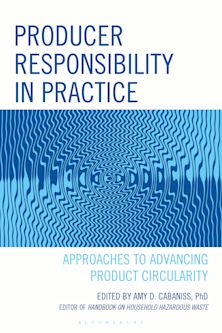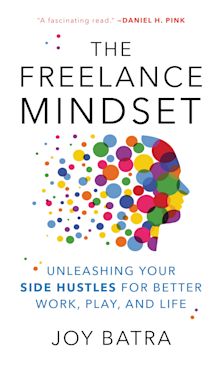Techlash
Who Makes the Rules in the Digital Gilded Age?
Techlash
Who Makes the Rules in the Digital Gilded Age?
- Delivery and returns info
-
Free US delivery on orders $35 or over
Description
Hailed by Publishers Weekly as "a potent primer on the need to rein in big tech" and Kirkus Reviews as "a rock-solid plan for controlling the tech giants," readers will be energized by Tom Wheeler's vision of digital governance.”
Featured on Barack Obama's 11/3/23 list of "What I’m Reading on the Rise of Artificial Intelligence"
An accessible and visionary book that connects the experiences of the late 19th century’s industrial Gilded Age with its echoes in the 21st century digital Gilded Age...
Hailed by Ken Burns as one of the foremost “explainers” of technology and its effect throughout history, Tom Wheeler now turns his gaze to the public impact of entrepreneurial innovation. In Techlash, he connects the experiences of the late 19th century’s industrial Gilded Age with its echoes in the 21st-century digital Gilded Age. In both cases, technological innovation and the great wealth that it created ran up against the public interest and the rights of others. As with the Industrial Revolution and the Gilded Age that it created, new digital technology has changed commerce and culture, creating great wealth in the process, all while being essentially unsupervised.
Warning that today is not the “Fourth Industrial Revolution” some envision, Wheeler calls for a new era of public interest oversight that leaves behind industrial-era regulatory ideas to embrace a new process of agile, supervised, and enforced code setting that protects consumers and competition while encouraging continued innovation. Wheeler combines insights from his experience at the highest echelons of business and government to create a compelling portrait of the need to balance entrepreneurial innovation with the public good.
“Once again, Tom Wheeler makes sense out of the dizzying technological changes that often seem to initially befuddle and beset us before they come into sharper focus, a focus he brings to each page and each new idea. . . it sometimes takes an original thinker to make clearer the “mess” in front of us. Bravo!" — Ken Burns
Table of Contents
Section One: Our Moment In History
Chapter One – Echoes Of The Gilded Age
Chapter Two – This Is Not The “Fourth Industrial Revolution”
Chapter Three – Closing The Open Internet
Chapter Four – You Ain’t Seen Nothin’ Yet!
Section Two: Who Makes The Rules?
Chapter Five – When Innovators Make The Rules
Chapter Six – The World’s Greatest Business Model
Chapter Seven – Where Is The Watchdog?
Section Three: Reasserting The Public Interest
Chapter Eight – Designing Behavioral Expectations
Chapter Nine – Privacy By Design
Chapter Ten – Competition By Design
Chapter Eleven – Truth And Trust By Design
Section Four: Consequences We Control
Chapter Twelve – Time To Make History Again
Acknowledgments
Product details
| Published | Oct 15 2023 |
|---|---|
| Format | Hardback |
| Edition | 1st |
| Extent | 264 |
| ISBN | 9780815739937 |
| Imprint | Brookings Institution Press |
| Illustrations | 7 b/w illustrations |
| Dimensions | 9 x 6 inches |
| Publisher | Bloomsbury Publishing |
Reviews

ONLINE RESOURCES
Bloomsbury Collections
This book is available on Bloomsbury Collections where your library has access.

































